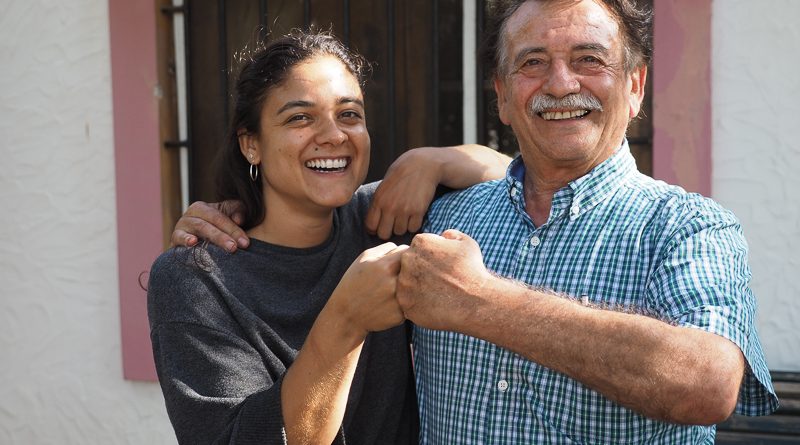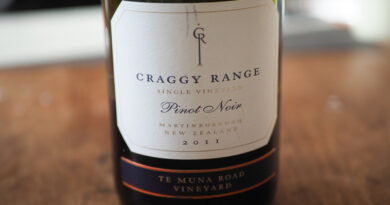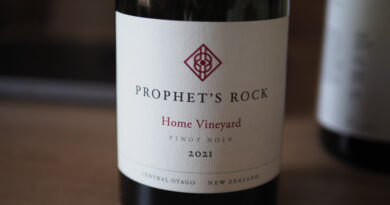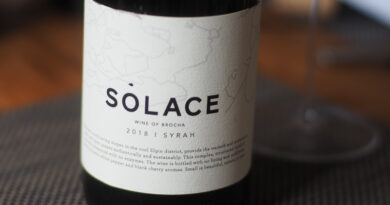In Uruguay: De Lucca
Jamie Goode visits De Lucca in Uruguay’s main wine region, Canelones. The family influence is Italian, but Dr Reinaldo De Lucca also has a strong Francophile leaning from his studies there. The results are full of interest.
Website: http://www.deluccawines.com/eng/
We drive from the new Maldonado region in the east, to Uruguay’s most established region, Canelones, to visit one of Uruguay’s leading wineries, De Lucca.
It’s headed up by third-generation winegrower Dr Reinaldo de Lucca, who has a PhD in viticulture at the University of Montpellier in France. We meet with him and his daughter Agostina De Lucca, who works in the business as well as running her own pasta factory in Mondevideo.
Agostina describes how, at the beginning of the 20th century her great grandparents arrived in Uruguay from Italy, and began growing wine grapes. Their families were from Piemonte and Sicilia, and both were winegrowers.
De Lucca is clearly quite experimental as a winery, and have some interesting varieties. Thirty years ago, Rienaldo started bringing in lots of different clones and varieties, and began planting vineyards with them. His plant material was an important source for others, too. The influence of his studies in France in the 1980s can also be seen in that Marsanne was one of the varieties that he brought back, and De Lucca now has quite a reputation for this wine.
‘It’s a variety that needs a lot of sunshine,’ he explains. ‘I wanted to get a gastronomic wine with a strong body. A wine heavy in the mouth.’ He offered it to colleagues and no one wanted it. ‘For 35 years Chardonnay and Sauvignon Blanc have been the two varieties of the new world,’ he laments.

Overall, De Lucca has 50 hectares of vines in different plots, all in Canelones. There are some different soil types here. On the top of the hills, there’s 60% clay (this is of the montmorillite type, which is desirable) with some calcium carbonate conglomerates. The mid-slope can have lime with silt and clay, and a bit of sand in small amounts. The bottom of the slopes tends to be too wet, and there is frost risk in spring (this lasts until the end of October).
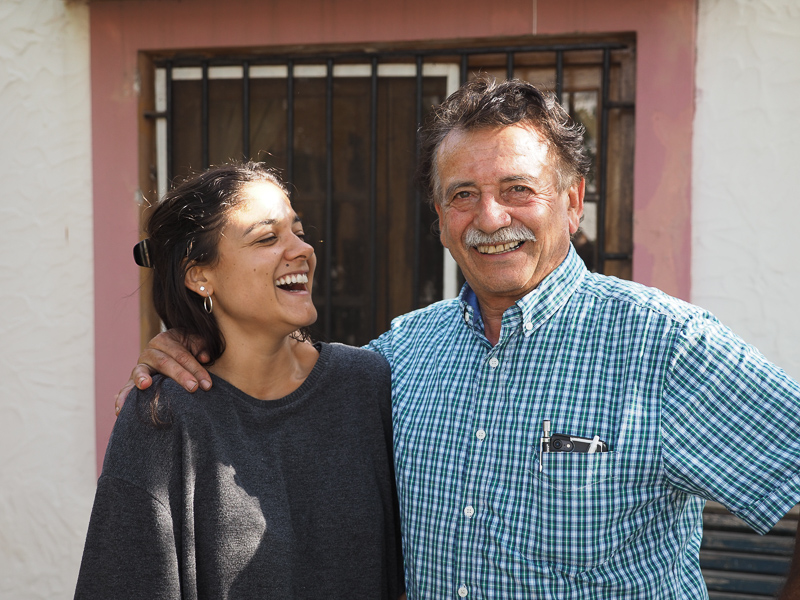
Rainfall is 950 mm on average, and Reinaldo says that they need it, because of high evapotransorative rates and shallow soils. Average yields are 35-40 hl/ha.
Farming isn’t organic, but they don’t use insecticide, and herbicide used just once a year before harvest (this is a contact herbicide recommended for integrated production).
All the grapes are hand harvested. There’s no need for acidification, because all the wines have good natural acidity.
Tannat, of course, is a major focus. ‘The mesoclimate is what defines the wine and it likes the climate here,’ says Rienaldo. ‘It’s more humid here with lots of cloud. Tannat likes that.’
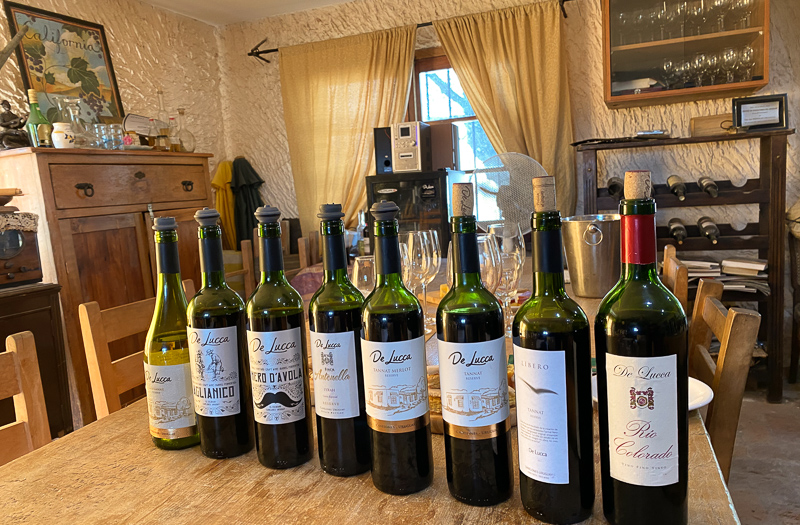
THE WINES
De Lucca Marsanne Reserve 2019
This is fleshy and broad with an appley edge to the pear and melon fruit. Some honey here, with notes of straw. Broad, richly textured and rounded in the mouth. Has nice personality with some varietal character. 88/100
De Lucca Aglianico 2018 Canelones, Uruguay
Just 700 bottles. Hand destemmed and fermented in two barrels. Now they know it works they have just planted some more. Supple and rounded with nice elegance to the red cherry and plum fruit with some dried herb character. There’s a nice freshness here with real elegance and purity. Has fine tannins. Light on its feet. 92/100
De Lucca Nero d’Avola 2018 Canelones, Uruguay
They have 1 hectare of this Sicilian variety. Lovely juicy lighter style red with nice freshness and purity. Sappy and bright with lovely freshness. This has some floral detail and a grainy, stony undercurrent. Nice finesse to this. So supple with red cherries and cranberries. 92/100
De Lucca Finca Antonella Syrah Reserve 2018 Canelones, Uruguay
This is so supple and drinkable. Planted on the subsoil (very little top soil) with clay and calcium carbonate. This has some peppery hints with very fine red cherry and plum fruit. Elegant with lovely finesse. Lighter style. 93/100
De Lucca Tannat Merlot Reserve 2019 Canelones, Uruguay
This is really fresh and detailed with lovely structure to the fresh berry and cherry fruit. It’s focused with raspberries and cherries, showing good acidity. Has focus and structure. Very old world in style. Has a grippy finish. Very stylish. 92/100
De Lucca Tannat Reserve 2018 Canelones, Uruguay
15% alcohol. Rich and warm with ripe sweet strawberry and cherry fruit. There’s a slight leathery edge to the sweet red cherry fruit on the palate. 88/100
De Lucca Líbero Tannat Reserve 2017 Canelones, Uruguay
95% Tannat with some Sangiovese and Nero d’Avola from the same parcel, harvested at the same time and co-fermented. 13.7% alcohol. This is fresh with some nice fine tannins sitting under the smooth, focused cherry and plum fruit. Really nice with some expressive personality. Has good tannins. A really stylish wine offering some richness but also a mellow elegance and finesse. 93/100
De Lucca Río Colorado 2011 Canelones, Uruguay
13.5% alcohol. 40% Cabernet Sauvignon, 40% Merlot, 20% Tannat. A special blend only made in some vintages: 2000, 2002, 2004, 2006, 2008, 2011. It’s from the same parcels each time when it is made. This is lovely, with a cedary, spicy, gravelly edge to the sweet blackcurrant fruit. Gravelly and chalky with nice dense structure. This is very impressive. Quite old school/old world, but beautifully made. 94/100
Find these wines with wine-searcher.com
In Uruguay

